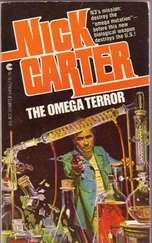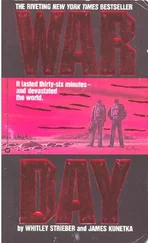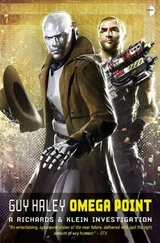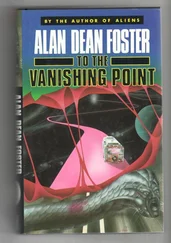“We have trouble after a light-up. The patients need support.”
Bill Osterman, the chief engineer, arrived.
“We have a supply problem,” he said as he came in. “Critical low oil and there’s nothing in our pipeline.”
“Okay, Bill, is there any other supplier we can try?”
“We need to start thinking in terms of a shutdown, to be frank.”
“How long do we have left?”
“On full use, four days.”
Nobody mentioned the flashes or the activity in the rec area, and he felt that the omission must be intentional.
“All right,” he said, “the first thing to do is reduce air-conditioning use. Drop it back to the sleeping areas at night only. The rest of the time, it’s off. How much more time does that give us?”
“Another forty-eight hours, maybe. So say a week.”
It seemed a great gulf of time, a week, but that, he knew, was just an illusion. What would he do when the generator shut down for good? How would they run the well? And how did you manage a building full of crazy people at night without the use of lights, let alone monitoring equipment?
“I want max possible power down, then. No air at all except in confined spaces where we can’t do without. No lights except emergency lighting and as needed for patient control.”
Bill nodded. David didn’t ask him how much longer this regime would give them. He’d do that later, in private.
Ray Weller arrived announcing that he would be reducing portions and simplifying meals until he could get more reliable deliveries.
“Supply fell out of bed,” he said, “everybody just stopped coming and communications are so bad, I can’t even tell you why.”
On food, they had five days.
With the nurses, handlers, counselors, and other personnel, there were now twenty-one people in the office.
“All right,” David said, “obviously we’re in serious trouble. Can we send any patients home?” He turned to Glen MacNamara. “I assume we shouldn’t even try.”
“From what we can tell, it’s a probable death sentence. I asked that new intake. She said she was lucky to be alive. She’s worried about her chauffeur, not to mention her father back in Virginia. Terribly worried.”
He remembered Charles Light as young and vibrant, bursting with sheer joy because of the value of what he was teaching. What charisma, and what a man to have for a father. She must be beside herself.
David decided to try to deal with the unspoken issue in the most straightforward manner that he could.
“Let me be frank. I observed people in the art room last night doing something with the kiln that was producing extraordinary flashes of light. I couldn’t tell who it was, they were wearing welder’s masks. But I think more than one person in this room knows what I’m talking about, and I’d like an explanation.”
Marian Hunt said, “What I find interesting was that you were down there at all.”
“This place is my responsibility, Marian. And I think that the new intake, Caroline, was out of her quarters at some point last night.”
“She was confined,” Marian said, “on your orders.”
“And your tone says that she shouldn’t have been.”
“She showed no signs of violence.”
“She was distraught. She needed to be controlled. Supported.” Also protected, but he certainly did not intend to add that.
He could see the color rising in Marian’s face. She was looking at it entirely from a professional point of view, from which standpoint he’d obviously made a misjudgment.
“I was with her for a time. Claire and I spelled each other. Doctor, to be frank with you, it’s not appropriate to bring procedures you learned at a public facility into this environment.”
“Doctor, if you don’t mind, I’d like to continue this outside of staff.”
She nodded. He continued playing his role.
“Mr. Osterman, I need you to deal with that kiln. I want it moved out of the art room.” Actually, he was terribly excited by what had been done. Even if he was still only peripherally in the picture, progress was being made and that was the first hopeful thing he had known since he’d realized the true import of what was happening.
Claire, who had been shaking her head, now burst out, “That’s a therapeutic tool! I want an explanation!”
“It’s being used in an unauthorized manner by unknown parties in the dead of the night, which is a damn good explanation, in my opinion.”
She gave him what he interpreted as a condescending look. Katie Starnes crossed her legs and smoothed down her white skirt. The silence in the room deepened.
“Leave the kiln,” he finally said. He was no actor, and the whole process involved made him uncomfortable. But he had no choice, obviously, not until more was known.
It was time to shift subjects, and he turned his attention to Katie.
“Is there any word from Maryland Medical Supply?”
“They’re expecting to ship day after tomorrow. But even if the shipment gets through, we can expect massive shortfalls and no-ships on most drugs.”
“So, basically, we’re in a tailspin. We’re going to have to cut to the bone. As far as our therapeutic service is concerned, it looks like we’re headed back to about the mid-fifties, before there were even any tranquilizers.” He looked to Glen. “Given that we’re leaving the kiln as is, I want the recreation area patrolled regularly at night, but if you find anything unusual, don’t intervene. Call me.”
Glen’s eyes told him that he understood. The workers at the kiln would be carefully guarded.
“And nurses, if you have patients missing from any confined setting at any time, I am to be informed personally and at once. Is that clear?”
Nobody spoke. Finally, Claire said, “Well, I think we have our marching orders.”
As far as they were concerned, he’d gone too far. Never challenge a nurse’s professionalism, not if you expect peace in your hospital. He tried a little diplomacy.
“Obviously, circumstances are presently working against us, so I want us all to stay as focused as we can on our mission, which is to keep this institution running, which means working together as best we can. But, if I am going to manage this place, I am asking you, please, to cooperate with me. We have a terribly hard time ahead, and we also have this security issue, given what happened to Mrs. Denman.”
“Here,” Katie asked, genuine surprise in her voice, “a security issue in the clinic?”
“With the town,” he explained hastily.
“Well,” Katie said, “I don’t know about the rest of you, but I’m doing my best.”
“We all are, and we’re certainly willing to carry out your policies,” Marian Hunt added.
“And the kiln is just a kiln,” Osterman muttered.
The meeting concluded on what he could only see as a sour note. But why wouldn’t they be sour? There was nothing positive here, it was all supply problems, security problems, and, because of the subterfuge he’d had to engage in, a lack of faith in their new boss. But any opponent in this room would have to see him as being nothing more than what he appeared to be—an inexperienced and overbearing supervisor.
Marian lingered at the door. Their eyes met and he nodded, and she returned.
She said, “David, we need to talk about some additional matters.”
“Don’t resign, Marian. Remember that I didn’t pick me, Mrs. Denman did.”
She sat down before the dark fireplace.
“If it’s all the same to you, David, I won’t dignify that with a response.”
“I’m sorry, I—”
“Don’t say you’re sorry. You say that too much. It makes you look weak.” She smiled a little. “Do you know that T-shirt? I think Mack wears it from time to time. “ ‘Graham Mining, Where the Weak are Killed and Eaten.’ Do you know that?”
Читать дальше











